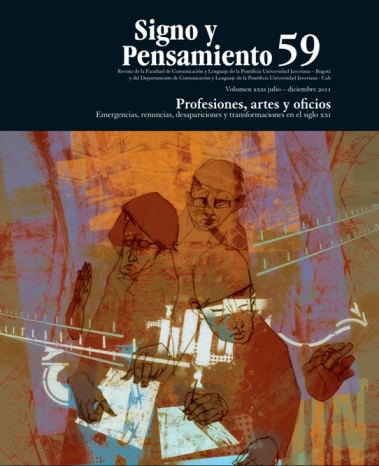Abstract
This article focuses on a comparative analysis of community radio realities in two Lusophone African countries: Guinea-Bissau and Mozambique, whose local field research refers to 2003, 2004, 2007 and 2009, respectively. It focuses on the tense relationship between political power and community radios through theoretical reviewing of two emerging concepts: “Communication for Development” and “Glocalization”. A comprehensive ground-breaking study, it aims at determining what role these media can play so as to build challenging and participative citizenship. It exposes the dangers threatening the sustainability of these tools of empowerment, on being deprived of viable institutional frameworks. The main objective is to identify similarities and differences, to discuss resulting issues and to investigate the feasibility of unifying criteria, formats and definitions.
Bakhtin, M. (2005), Problemas da poética de Dostoievski. Rio de Janeiro, Ed. Forense Universitária.
Bordenave, J. (2003), O que é Comunicação. São Paulo, Ed. Brasiliense.
Brecht, B. (2005), “Teoria do Rádio (1927-1932)”. In: Meditsch, E. (org.), Teorias do Rádio: textos e contextos – Volume I. Florianópolis, Ed. Insular.
Coleman, S. (2003), A Tale of Two Houses: The House of Commons, the Big Brother House and the People at Home. London, Ed. Hansard Society.
Gumucio-Dagrón, A. (2001), Making Waves: Stories of Participatory Communication for Social Change. New York, Rockfeller Foundation.
Ferin, I. (2002), Comunicação e Culturas do Quotidiano. Lisboa, Ed. Quimera. Freire, P. (1987), Pedagogia do Oprimido. Rio de Janeiro, Ed. Paz e Terra.
Giddens, A. (1994), Beyond Left and Right. Cambridge, Ed. Polity Press.
Jane, T. (2004), “O papel das rádios comunitárias na educação e mobilização das populações para os programas de desenvolvimento local em Moçambique” in: Anuário Internacional de Comunicação Lusófona.
Lindgren Alves, J. (2005), Os Direitos Humanos na Pós-Modernidade. São Paulo, Ed. Perspectiva.
Mário, T. (2008), Direito à Informação e Jornalismo em Moçambique. Maputo, Ed. Ndjira.
Mill, J. S. (1859-1964), Utilitarianism, Libery and Representative Government. London & New York, Ed. Everyman’s Library.
Namburete, E. (2003), “A Comunicação Social em Moçambique: da independência à liberdade” in: Anuário Internacional de Comunicação Lusófona.
Pavarala, V. & Malik, K. (2007), Other Voices – The Struggle for Community Radio in India. London, SAGE Publications.
Rennie, E. (2006), “Community Media and Direct Representation”. Paper presented at the annual meeting of the International Communication Association, Dresden International Congress Centre, Dresden, Germany.
— (2006) Community Media: A Global Introduction. Lanham MD, Ed. Rowman & Littlefield (forthcoming).
Vigil, J. (2003), Manual Urgente Para Radialistas Apaixonados. São Paulo, Ed. Paulinas.
Wolton, D. (2004), Pensar a Comunicação. Brasília, Ed. UnB.
This journal is registered under a Creative Commons Attribution 4.0 International Public License. Thus, this work may be reproduced, distributed, and publicly shared in digital format, as long as the names of the authors and Pontificia Universidad Javeriana are acknowledged. Others are allowed to quote, adapt, transform, auto-archive, republish, and create based on this material, for any purpose (even commercial ones), provided the authorship is duly acknowledged, a link to the original work is provided, and it is specified if changes have been made. Pontificia Universidad Javeriana does not hold the rights of published works and the authors are solely responsible for the contents of their works; they keep the moral, intellectual, privacy, and publicity rights.
Approving the intervention of the work (review, copy-editing, translation, layout) and the following outreach, are granted through an use license and not through an assignment of rights. This means the journal and Pontificia Universidad Javeriana cannot be held responsible for any ethical malpractice by the authors. As a consequence of the protection granted by the use license, the journal is not required to publish recantations or modify information already published, unless the errata stems from the editorial management process. Publishing contents in this journal does not generate royalties for contributors.


